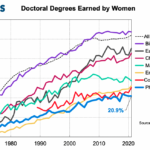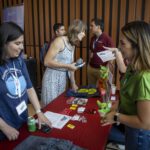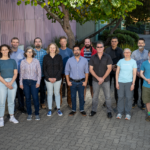According to the American Physical Society (APS), today only 21% of physics PhDs are awarded to women. The fields of engineering, computer science, mathematics and statistics fare only slightly better. The numbers look even more disappointing for underrepresented minorities, who account for only 10% of physics PhDs. This is an issue that Lab researchers are […]
News
International Telework
March 20, 2024 Dear colleagues, Berkeley Lab’s open and collaborative research environment is dependent in part on our worldwide collaborations, some of which require our people to conduct research or attend meetings in other countries. International travel and research require Lab approvals, and special considerations apply when traveling to or through DOE-designated countries of risk.* […]
Restricted Party Screening Annual Training – Save the Date, April 11
The Export Compliance Office is pleased to announce the upcoming annual Restricted Party Screening (RPS) training, scheduled for Thursday, April 11 2024 at 10 am. This important training session is highly recommended for Export Control Liaisons and Visual Compliance users, who will automatically receive an exclusive invitation to this event. We are also extending this […]
Introducing Research Themes: Preparing Berkeley Lab for Continued Leadership
For a national laboratory the size, scope, and profile of Berkeley Lab to continue to lead the scientific enterprise requires strategic planning. This means having a long-term plan to invest in the remarkable people of Berkeley Lab, our most important strategic asset, and expanding our capabilities, infrastructure, tools, and methods. To help guide the Lab […]
Career Pathways Office Programs: Something for Everyone
The Career Pathways Office (CPO) organizes a variety of career development programs that help early career researchers build skills that will be valuable in their careers—whether in academia, industry, government, or at Berkeley Lab. Examples include the annual research SLAM science communication competition, the Postdoc Career Fair, the Scientific Leadership and Management Skills Course, and […]
Partner Advisory Board: Supporting Berkeley Lab’s Strategic Collaborations with Industry and Others
Industry, academic, and community relationships are critically important to Berkeley Lab and to the Department of Energy. These partners can collaborate with Lab researchers, provide additional funding for research and development projects, and offer input on Lab programs. Part of the Department of Energy’s mission (executed through its Office of Technology Transitions) is to expand […]
Reminders from the Strategic Partnerships Office
Proposal Submission Rush Requests The Strategic Partnerships Office (SPO) Contracts Officers (COs) are the authorized officials of the Lab with delegated authority to submit proposals to non-DOE sponsors. It is the SPO submission policy that all proposals must be entered into eSRA and submitted to SPO for review and action no later than five (5) […]
LDRD Program Announces FY24 Projects
Our Laboratory Directed Research and Development (LDRD) program serves as a proving ground for innovative concepts, providing seed funding for selected high-risk, high-reward research ideas. It attracts promising young scientists and engineers and encourages them to pursue new approaches to problems. For the FY24 cycle, the LDRD Call for Proposals cycle received a total response […]
Funding Awards Advance Strategic Areas of Research at Berkeley Lab
Berkeley Lab has been fortunate enough over the years to have received many awards that fund new and interesting work that ties into national priorities, from clean energy to biopreparedness. This year in particular has been a banner year, with the late summer and fall in particular bringing in news of many funding awards. Awards […]
Revolutionizing How We Do Science: The Superfacility Story
Left to right: Debbie Bard, Superfacility Project lead, and Dula Parkinson, ALS staff scientist and an early proponent of the superfacility concept Revolutionizing how we do science can mean different things, from entirely new approaches to developing new science instruments. It can also mean finding innovative ways to serve the scientific community. The concept of […]
Was this page useful?









